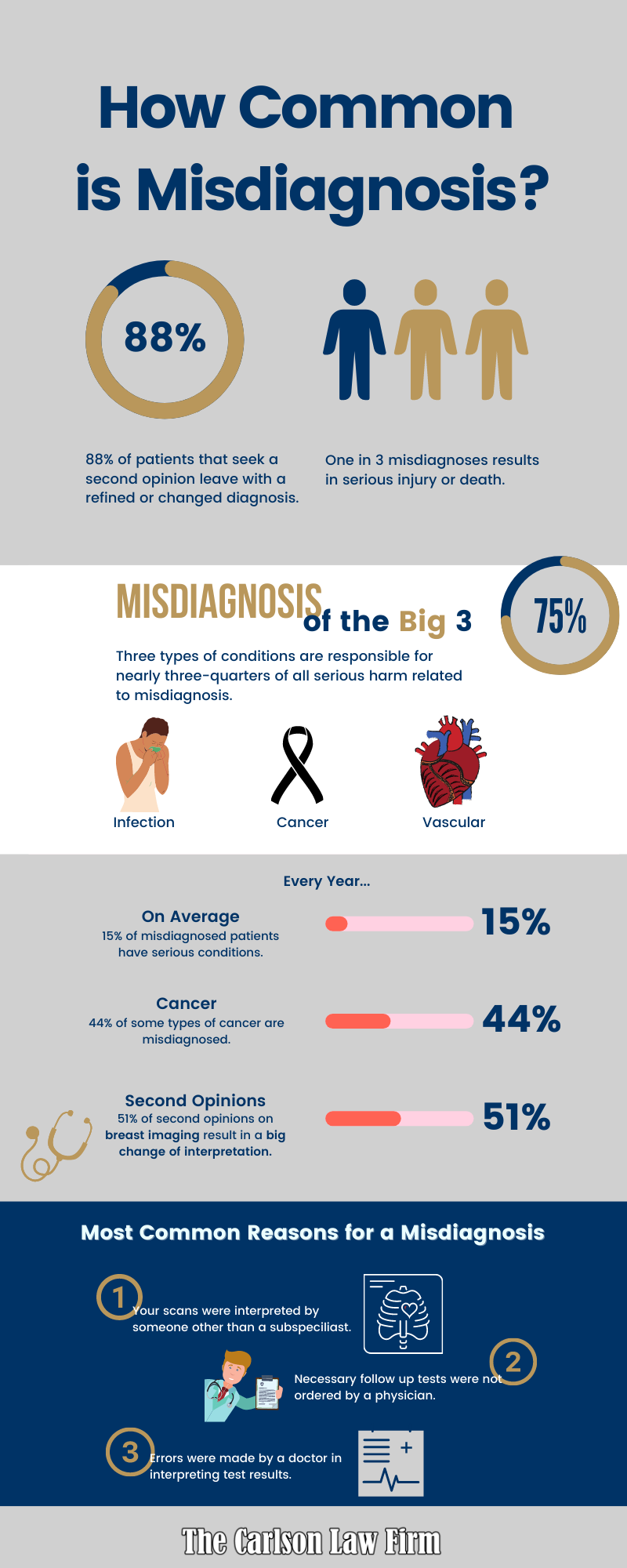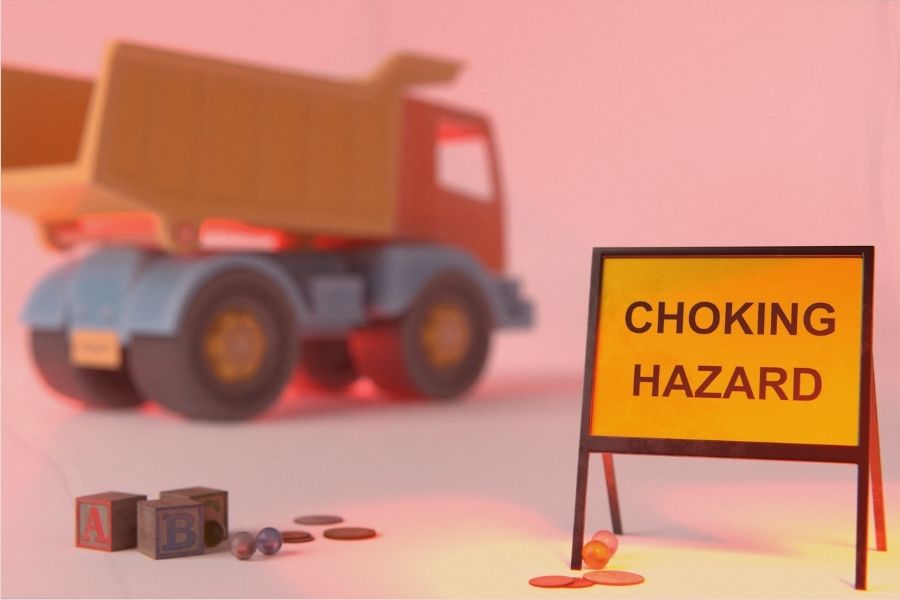The Carlson Law Firm no longer handles medical malpractice claims. If you are in search of a medical malpractice attorney and you are in Texas, contact the Texas State Bar 800-252-9690
A study by Johns Hopkins University claims that more than 250,000 people in the United States die every year from medical errors. After heart disease and cancer, medical malpractice is the third-leading cause of death in the United States. Families who have lost loved ones often may not understand what went wrong. It’s easy to take a doctor at their word for what happened to your loved one. Still, it may not be clear when an individual or family should consider a medical malpractice lawsuit against a health care provider.
What is medical malpractice?
Medical malpractice occurs when a healthcare provider acts negligently and doesn’t treat a patient with the recognized standard of care. In medicine, the standard of care is generally defined as what a reasonable and prudent medical professional would or would not do under the same or similar circumstances.
How can medical malpractice occur?
Medical malpractice can occur for a number of reasons. Anything from a misdiagnosis to retained instruments has the potential to be a medical malpractice claim. It’s important that you understand that when medical malpractice occurs, it is not your fault. However, you should be compensated for anything that leads to death or increases your cost in medical bills or treatment.
What are the 5 signs of medical malpractice?
Often, medical conditions have very similar symptoms. The medical industry has conditioned people to believe that doctors are people and make mistakes, just like anybody else. However, workers in the health care industry must take every reasonable step they can to make sure you receive the diagnosis that may save you or a loved ones' life. Without relying on the tools available to them or even seeking a second opinion from another medical professional on their team, they may be doing you a disservice. Telltale signs that you are not getting the medical treatment you deserve to include the following:
- Your symptoms are common in more than one condition. It's important for your medical team to rule out a condition that you may have by asking a number of questions and ordering tests.
- Your doctor did not spend enough time with you. Doctors often have a lot of patients to see. As such, they don't always spend as much time with a patient as they should.
- The doctor did not use all available diagnostic tools. As a layperson, it's tricky to know what tests or diagnostic tools are available to help diagnose your condition. Still, if you think something was missed, call your doctor and ask if there are other diagnostic options available.
- Your medicine isn't working. If the medicine prescribed isn't doing much in the way of improving the symptoms of or health condition, it's a sign of a misdiagnosis.
- A second opinion differs from the first. If you see a doctor and they prescribe a medication that doesn't help improve your medical condition, it's important that you seek a second opinion. If that second opinion doesn't match up with the first, it may be a sign of misdiagnosis.
9 Legal Questions to Understand About Medical Malpractice
1. How does a lawyer determine a victim of medical negligence?
In a medical malpractice lawsuit, a lawyer will need to demonstrate several facts.
For starters, it would need to be proven that you had a physician-patient relationship with the doctor or facility you were injured in. In other words, you cannot pursue a lawsuit against a doctor who gave you bad medical advice at a party.
Next, your lawyer will need to demonstrate that the defendant or defendants failed to uphold their duty of care. As mentioned above, the duty of care in the medical industry is typically defined as the “medical standard” or how a physician’s peers would’ve behaved in similar circumstances.
Third, your attorney will need to prove that your injuries or illness were the result of the defendant’s negligence. Proving poor medical care is easier said than done. You need a highly skilled medical malpractice attorney and legal staff to examine your injuries, medical records and other evidence to prove your claim. Many times, the defense will argue that your injuries are not as severe as you say or that you are injured, but they aren’t responsible. It’s important to hire an attorney in medical malpractice lawsuits.
Finally, a medical malpractice lawyer will need to prove that you suffered damages, financial and otherwise, as a result of your injuries.
2. What should I do if I suspect that I or someone close to me received negligent medical care?
If you suspect that you are receiving negligent medical care, make your health your first priority. With 10% of all annual deaths attributed to medical errors, it’s important that you do what is best for you. If you suspect the medical care you are receiving is subpar, consider the following steps:
- Find another doctor. There is no shame in finding a new doctor or seeking a second opinion.
- Request your medical records as soon as possible. If you decide to pursue a medical malpractice claim, your medical records are important to preserving information.
- Journal about your health. Describe the symptoms you are experiencing as a result of the medical malpractice.
- Contact an attorney. Medical malpractice claims are complicated. It’s important that you hire an attorney with the experience and knowledge to represent you.
- Do not speak with opposing counsel or the hospital. If you decide to pursue a claim, it’s important that you allow your attorney to serve as the main point of contact for all parties involved. If you believe you are the victim of medical malpractice, never give a statement without an attorney present or an attorney to review anything you sign.
3. How soon should I contact a lawyer if I suspect medical negligence?
Generally speaking, you should contact a medical malpractice lawyer as soon as possible. These claims are very complex and the sooner you get an attorney involved, the more evidence can be preserved.
4. What if another lawyer rejected my medical malpractice lawsuit?
Medical malpractice lawsuits are extremely tricky, require a significant burden of proof from a plaintiff, and can take years to resolve. Many law firms do not have the infrastructure or resources to sustain medical malpractice lawsuits. It’s important that you choose a firm with a history of success in handling these types of claims.
On the flip side, attorneys may reject cases based on the facts that they’re able to find. For example, attorneys have to be aware of the statute of limitations, the cost of the case against recovery in compensation caps, and many other legal situations that can arise. Medical malpractice lawsuits require experts to testify as witnesses and these experts can cost thousands of dollars.
5. Who can I hold accountable in a medical malpractice lawsuit?
Medical malpractice can occur at any step of your medical visit and in any branch of medicine. Our medical malpractice lawyers are ready to help if you’ve been affected by the following reasons:
- Birth injury lawsuits
- Dental malpractice
- Chiropractor malpractice
- Cosmetic surgery malpractice
- OBGYN malpractice
- Psychiatric malpractice
- Pharmacy and medication errors
- Unnecessary procedures
- Retained instruments after surgery
- Anesthesia errors
- Emergency room errors
There are a number of reasons that you may need to seek counsel from an experienced medical negligence lawyer. Contact our firm at 800-359-5690 to schedule your free case review.
6. Is misdiagnosis considered medical malpractice?
Yes. Medical malpractice is an umbrella term that encompasses various forms of negligence in the medical field. A misdiagnosis or delayed diagnosis is not enough to bring a claim against a medical provider. However, an attorney can help you demonstrate that a doctor did not behave competently, by examining what they did or did not do during your medical evaluation before arriving at their diagnosis.
7. Is a defective medical device considered medical malpractice?
Generally speaking, a defective medical device means that you would hold the company that manufactured the device accountable through a product liability claim. However, there may be instances where an attorney can mount a case against a facility or individual doctor if they were aware of a defect in a device and elected to give it to their patient anyway.
8. Who can be held accountable for a medical malpractice claim?
Defendants in a medical malpractice claim can range from the hospital or clinic itself to a doctor or nurse.
9. How do I know if I have a medical malpractice claim?
If you suspect that you may have a claim against a hospital or medical provider, contact an attorney right away to discuss your case. With Carlson, medical malpractice consultations are free of charge and we only get paid if we successfully resolve your case.
How can I contact a medical malpractice lawyer?
Contact your state bar for a referral to a lawyer who handles medical malpractice.




